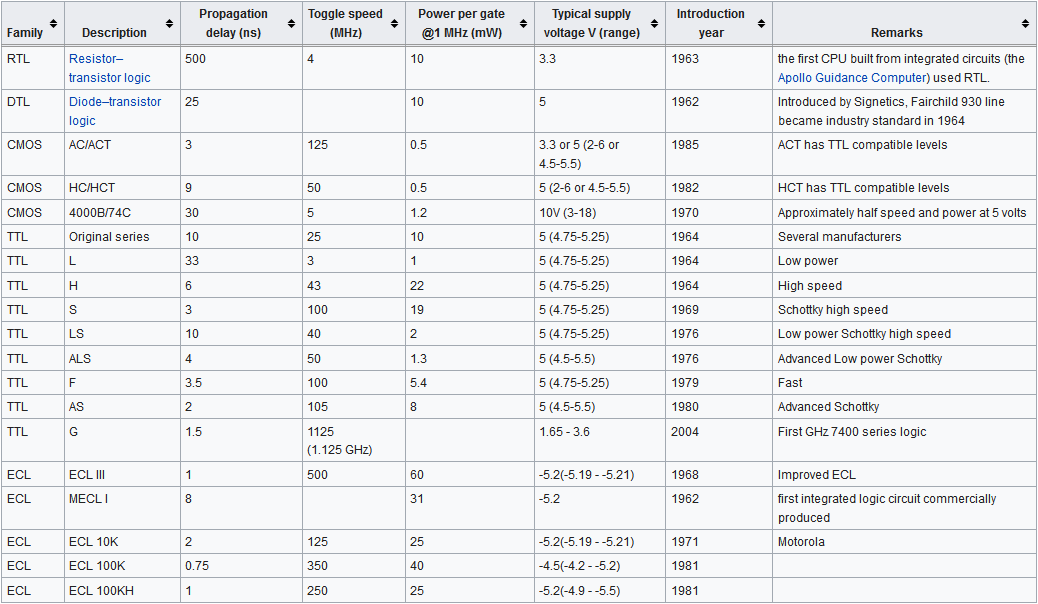
Location: Home > Terminology Library

Logic Circuit
In computer engineering, logic circuit or logic family may refer to one of two related concepts. A logic family of monolithic digital integrated circuit devices is a group of electronic logic gates constructed using one of several different designs, usually with compatible logic levels and power supply characteristics within a family. Many logic families were produced as individual components, each containing one or a few related basic logical functions, which could be used as "building-blocks" to create systems or as so-called "glue" to interconnect more complex integrated circuits.
The list of packaged building-block logic families can be divided into categories, listed here in roughly chronological order of introduction, along with their usual abbreviations:
1. Resistor–transistor logic (RTL)
1.1 Direct-coupled transistor logic (DCTL)
1.2 Resistor–capacitor–transistor logic (RCTL)
2. Diode–transistor logic (DTL)
2.1 Complemented transistor diode logic (CTDL)
2.2 High-threshold logic (HTL)
3. Emitter-coupled logic (ECL)
3.1 Positive emitter-coupled logic (PECL)
3.2 Low-voltage positive emitter-coupled logic (LVPECL)
3.3 Complementary transistor micrologic (CTuL)
4. Gunning transceiver logic (GTL)
5. Transistor–transistor logic (TTL)
6. P-type metal–oxide–semiconductor logic (PMOS)
7. N-type metal–oxide–semiconductor logic (NMOS)
7.1 Depletion-load NMOS logic
7.2 High-density nMOS (HMOS)
8. Complementary metal–oxide–semiconductor logic (CMOS)
9. Bipolar complementary metal–oxide–semiconductor logic (BiCMOS)
10. Integrated injection logic (I2L)

Get in touch with us now!
Please take a minute or two to complete this simple form to get reply in 24 hours, thank you!
*Please check the trash box of your mailbox, if you do not receive our email.



